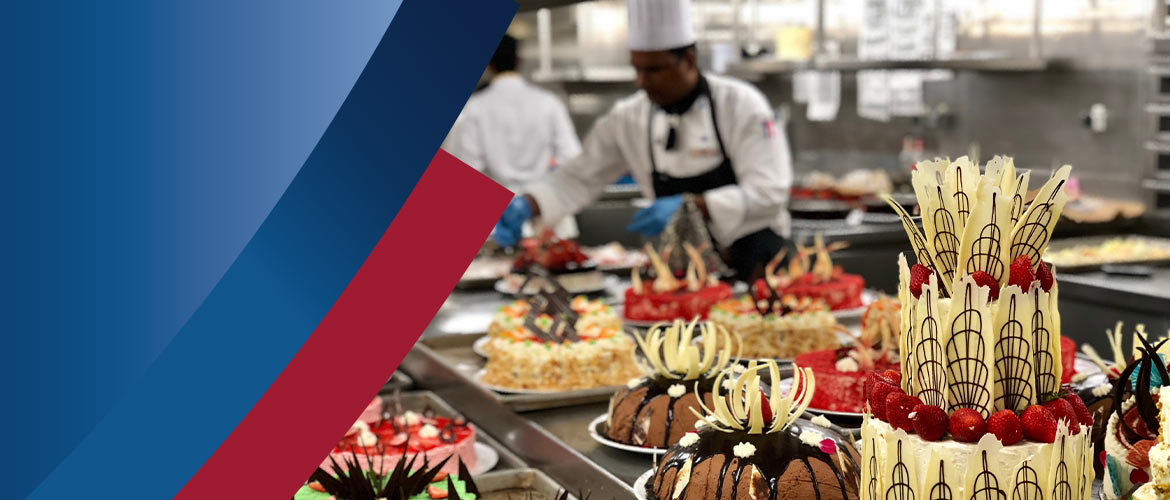Have you ever wondered how cruise ships store and manage all the food for its thousands of guests?
Each year there are bigger and bigger ships, with the cruise companies’ commitment to offer top-quality services on board, it is a great challenge for the crews to manage the entire operation, but the food is even more challenging in some aspects. With the elevated number of guests, comes a high demand for variety and if we add the frequency of meals that need to be served, the whole process can be quite massive.
What kind of food do they serve on cruises?
The most curious thing about food in cruises is how they adapt its menu to each port they are scheduled to dock at.
As produce needs to be as fresh as possible, when the ship arrives at port the orders are already waiting to be loaded into metal trays specially designed for its correct storage aboard-ship. The produce is then labelled and dated to keep a close handle and to avoid any sanitation problems.
These orders are so big, they need to be placed even months in advance, but if your cruise kitchen has unexpectedly run out of something, it is possible to find an alternative on the next port. This is why is important that cruise companies keep a local partner, who is acquainted with suppliers, to manage their in-land logistics.
Are cruise meals freshly made?
Well, it depends. As cruise operations are moving towards a more sustainable path, some cruise companies made the choice to prepare some foods, like as sushi, only on demand. However, some special products such as the gluten-free options are store-bought.
Of course, some cruises advertise meal plans in which they offer only freshly made meals, but the average tendency is towards optimising prep-time and reducing waste by combining fresh meals with ready-made ones.
Can passengers bring their own foods on-board?
This also depends of the cruise, so it is important to check the respective rules for each route, as some countries may allow different things, but with the exception of fruit and meat, you can bring on-board many things, mainly products specific for food allergies.
Handling a food service can be a challenge at any place, but the cruise food operation is beyond average challenges, if you take under consideration the amount of people they feed and the limitations posed by being at sea. For a successful cruise operation, be sure to hire a trusted and experienced cruise logistics partner, Marmedsa Cruise Services can help you with this task, write us to cruises@marmedsa.com
